Prolonged talent shortages are starting to hit businesses hard. Demand is up, and supply is down, particularly in critical areas like software development, cybersecurity, and renewable energy. With 86% of CIOs struggling to compete for qualified candidates and 57% of UK professionals feeling the crunch, companies must engage in tactical hiring strategies to stay in the game.
While most businesses spend months hunting for the perfect candidate, a handful of companies have struck gold. Rather than focusing on hiring people who have done the same job before, they’re cross-pollinating talent by targeting transferable skills.
In this blog post, we’ll dive into what transferable talent is, why it matters, and how you can adopt a skill-first hiring strategy to futureproof your business.
What is transferable talent – and why does it matter?
Have you ever interviewed someone who just “gets it”? They may not be perfect on paper and may not even have the experience you were looking for, but something about them makes you want to give them a chance.
Candidates like these are a great example of transferable talent. These professionals rarely tick every box on your job description but bring something even more valuable: the ability to apply their skills from one industry to another.
The renewable energy sector, for example, is a relatively young industry with rapid growth and a high demand for talent with specialised skills. The best candidates are juggling multiple interview processes and offers, and even if you offer them the best salary, benefits, culture, and work environment, there’s still a high chance you’ll end up back at the drawing board.
That’s why we’re encouraging our clients to take a different approach. Instead of wasting time, energy, and resources fighting for the “perfect” person, why not speak to a Project Manager who wants to transition from manufacturing to electric vehicle production? Why not interview a Software Engineer looking to jump from big tech to a more socially responsible sector?
It’s true that hiring transferable talent means spending a little more time bringing them up to speed in their first few weeks, but those efforts pale in comparison to the impact of drawn-out hiring processes and open vacancies on your existing team’s morale.
This approach isn’t just about filling vacancies more efficiently and reducing your time-to-hire; it’s also a tactical way to widen your hiring pool to include people with unique perspectives. In our experience, those willing to put in the work and immerse themselves in a brand-new industry are often likely to become long-term, dedicated employees. Plus, implementing a skills-first hiring strategy could make your talent base 62% more diverse!
Building a team of adaptable, passionate, and diverse employees is a fantastic place to start if you’re a forward-thinking company keen to get ahead of the curve.
How to build a skills-first hiring strategy.
Firstly, flip traditional recruitment on its head. Rather than prioritising industry experience, shift your focus towards soft skills. In fact, a whopping 85% of job success comes from well-developed soft and people skills!
The key to successfully hiring transferable talent is strategically identifying which skills are high-value, which can be taught, and which aren’t essential.
Here’s a cheat sheet…
- Core technical skills
Aim to seek foundational technical skills that translate across industries. A Software Engineer’s ability to write clean code is, for example, far more valuable than being a whizz at using your specific tech stack.
If your instinct is to seek a Software Engineer with 2 years of experience, ask yourself what you expect them to have achieved in this timeframe. Maybe they should be able to fix bugs accurately and efficiently, work cross-functionally, and juggle multiple projects simultaneously. Instead of posting “years of experience” on your advert, post these skills! By breaking things down and identifying precisely what you’re looking for, it’ll be far easier to attract the right transferable talent.
- Critical soft skills
During interviews, focus on exploring each candidate’s universal capabilities:
- Are they adaptable?
- What’s their communication style?
- How effectively can they communicate?
- What’s their approach to problem-solving?
- Are they agile, coachable, and willing to learn?
- Do they possess key leadership and collaboration skills?
- Industry-agnostic experience
Finally, prioritise candidates that demonstrate capability regardless of context. Ask them about their track record of doing things like:
- Meeting tight deadlines.
- Working cross-functionally.
- Managing complex projects.
- Engaging with stakeholders.
- Driving digital transformation.
- Building stakeholder relationships.
How to transition to skills-first talent assessments.
We can’t deny that implementing a skills-first strategy takes effort, but the rewards are more than worthwhile.
- Map your organisation and hiring plans.
Look at your current organisation plan, hiring strategies, and processes, and determine which areas may be unnecessarily industry-specific.
- Audit your job descriptions.
Are you filtering out great candidates thanks to your rigid criteria? Replace all “years of experience” requirements with core competencies. You could also introduce “must-have” and “nice-to-have” sections to encourage more candidates to apply.
- Source talent through a recruitment partner.
One downside of hiring transferable talent is that sourcing and engaging candidates in other industries can take time and effort. Plus, it can be tiresome to review hundreds of irrelevant applications. To make things easier, outsource these tasks to a trusted recruitment partner specialised in skills-first hiring strategies.
- Revamp your assessment process.
Develop frameworks for evaluating transferable skills through behavioural interviewing, skills-based assessments, and problem-solving scenarios. Make sure your interviews focus on real-world applications and go beyond the resume.
- Train your Hiring Managers.
Ensure that everybody involved in the hiring process (including people who review resumes, take preliminary calls, and run interviews) understands how to evaluate candidates based on potential rather than experience.
- Support new hires through onboarding.
Create onboarding support development programmes to help transferable hires adapt to your industry. While most professionals willing to switch industries are usually excited to learn and get stuck in, you’ll improve your retention rates by ensuring they feel supported from day one.
The future of talent is transferable.
According to LinkedIn, 69% of US Executives plan to prioritise skills-first hiring strategies in the coming years. There’s never been a better time to get ahead of the curve, widen your talent pool, reduce your time-to-hire, increase diversity, and position your business as a force to be reckoned with.
At SR2, we believe that transformative change starts with the right people. As a B-Corp-certified recruitment partner that works with purpose driven organisations, we know how to identify the transferable talent that will drive your company forward.
Want to learn more about how we can help you tap into broader talent pools and build diverse, adaptable, and loyal teams? Get in touch today to explore what a skills-first hiring approach could look like for you.








